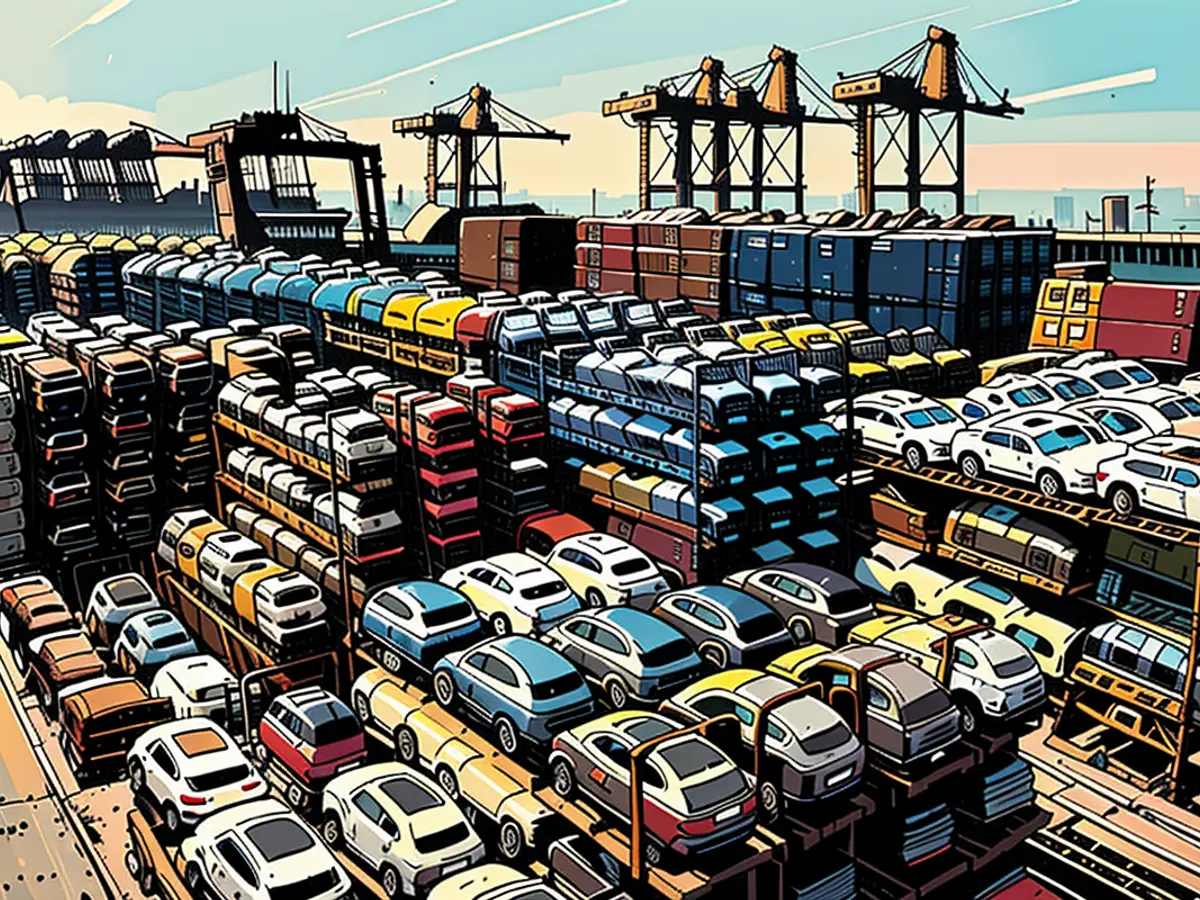The European Union has imposed tariffs on electric cars imported from China.
The European Union is contemplating imposing levies on Chinese electric vehicles, mirroring the US's recent move to hike tariffs on Chinese electric cars. The European Commission has proposed preliminary tariffs on electric vehicles manufactured by Chinese brands BYD, Geely, and SAIC. BYD should face an import duty of 17.4%, Geely 20%, and SAIC 38.1%. These tariffs go into effect in July.
Not only these manufacturers, but vehicles from other brands excluded from the review are also subject to these tariffs. For cooperating organizations, a 21% import duty will be applicable. Non-cooperating entities must pay a 38.1% import duty. The European Commission mentioned that Tesla, the American carmaker producing cars for the European market in China, may be liable to an individually determined tariff upon request. German automakers that also import cars produced in China are eligible for a more expedited review later.
The payment of these tariffs depends on whether the EU can find an alternative solution with China. If no solution is found, they will be effective from July 4th, provided the EU understands that they will ultimately lead to higher long-term tariffs.
The US serves as an Example
The Commission justifies its decision by stating that electric car imports from China harm the European automotive industry. It follows in the footsteps of the US, which recently quadrupled tariffs on Chinese electric vehicles to 100%. European automakers have expressed vehement objections to these tariffs, fearing retaliatory measures on their most important market, China.
The Chinese government has signaled its intention to retaliate. It will not passively accept higher EU tariffs. The Chinese Foreign Ministry contends that the EU's special tariffs on electric cars violate market rules and are against the EU's interests. "This anti-subsidy investigation is a typical example of protectionism," said the spokesman for the ministry. The EU must abide by its commitment to promote free trade and oppose protectionism.
DIHK Warns of Repercussions for the German Economy
Volker Treier, Head of Foreign Trade at the German Industry and Trade Chamber, warns that the impending decision by the European Commission carries consequences for the export-oriented German economy. "Although the tariffs affect German automakers in China, China's announced countermeasures could impose additional trade barriers for the German economy. The EU must tread carefully to avoid getting caught between the geopolitical gears of its two most significant trading partners."
Competitive disparities are indeed a concern for Europe, but the solution should involve creating an optimal business environment and promoting open markets and competition through measures like bureaucratic reduction and new trade agreements in the Indo-Pacific and Latin America. Future trade conflicts should be avoided, as should a more seclusion of Europe.
Similarly, Carl-Julius Cronenberg, the FDP faction's trade expert in the German parliament, advises, "The EU should prioritize enhancing the competitiveness of European businesses. Sensitive reactions from China, such as export restrictions on critical raw materials, are anticipated if there is an inordinate increase in tariffs."
Read also:
- The EU Commission's proposal to impose tariffs on Chinese electric vehicles is aimed at protecting the electrical industry within the EU, as cheap import prices from Chinese carmakers like BYD, Geely, and SAIC are posing a threat.
- In response to the EU's proposed punitive tariffs on electric cars, Chinese carmakers, such as Geely and SAIC, may retaliate, potentially impacting German automakers that import vehicles produced in China.
- The USA, which has already quadrupled tariffs on Chinese electric vehicles, has become a significant example for the EU in its decision to impose levies on Chinese electric cars.
- The EU Commission's move to impose tariffs on electric cars imported from Chinese brands could potentially lead to an increase in the price of electric vehicles in the US market, as American carmakers like Tesla, which manufactures cars for the European market in China, may be subject to individually determined tariffs upon request.








